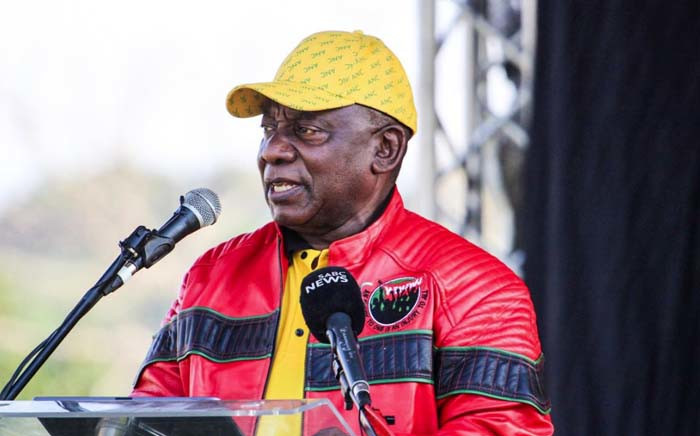THE Congress of South African Trade Unions (Cosatu) has lashed out at President Cyril Ramaphosa’s decision to dismantle Transnet by breaking out the Transnet National Ports Authority (TNPA) into an independent subsidiary.
Cosatu, which backed Ramaphosa’s campaign for the ANC presidency, says the president can no longer be trusted anymore because he is now taking critical economic decisions without engaging unions, workers or other social partners.
“We don’t trust President Cyril Ramaphosa anymore. He seems to be taking his mandate elsewhere,” said Cosatu spokesperson Sizwe Pamla on Thursday.
“We reject this decision to unilaterally unbundle Transnet by government because South Africa is already struggling with fact that the Treasury seeks to pursue its own very conservative fiscal target of “a main budget primary balance by 2022/23” at the expense of the public service workers under the PSCBC, whilst protecting the muddled pay and benefit structures in agencies and public entities, with no concern about productivity or performance.”
He added: “The question that has to be raised then is why there is no concern or even analysis by the government on the rate of growth of the personnel headcount and the wage bill pertaining to these state institutions. We can only conclude that this is because these institutions are part of the Neoliberal statecraft- with its fragmented form and incoherent role as emerged under GEAR.”
Pamla said it viewed Ramaphosa’s decision to implement the National Ports Act of 2005 with suspicion and scepticism because it is not in line with the vision of the tripartite alliance and the ANC Manifesto.
“This new method of unbundling SOEs has not been properly canvassed with relevant stakeholders and is at odds with the commitment to a developmental, interventionist state,” said Pamla.
“This is deeply disturbing because this decision was unilaterally taken without broad and comprehensive consultation of stakeholders and unions in particular. It has become a habit for this administration to clandestinely take drastic decisions about State-Owned Companies without engaging unions or other social partners.”
He said the privatisation of South African Airways (SAA) and the dismantlement and fragmentation of Transnet have been decided without unions being properly engaged.
He added that this follows in the footsteps of massive retrenchments at SABC that took place despite strong objections from labour.
“This raises the question of whose vision is being pursued by these unilateral decisions and where does this mandate come from considering that even at a political level, there has not been any discussions about these decisions,” said Pamla.
“This so called “reform” of the SOEs occurs in an environment where this government has made it very clear that it is not interested in the state intervention in the economy. Over the last two years, there has been a fixation with rolling back the state’s role in the economy, trim down the state and open doors for the private sector to take over.”
- Inside Politics



